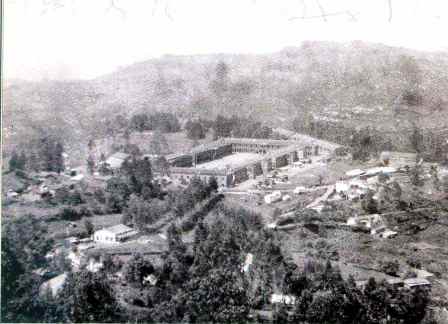(May 8 marked the 75th anniversary of the end of Second World War. This story was submitted to the People’s War site by Elizabeth Perez of Stockport Libraries on behalf of Margaret Ledger who worked as a nurse in India in several places during the war including Gudalur and Wellington in Nilgiris. Excerpts)
I left school in 1939. Europe was beginning to fall under the control of Hitler. It was obvious England would be at war against Germany. I was 18 years of age, so I knew I had to do something useful for the Country. I decided to become a nurse.
I commenced my nurse training in September. War had been declared. At the training, I joined the Queen Alexandra’s Imperial Nursing Service. There was a call for trained nurses to serve in England and Overseas. The Queen Alexandra’s Nurses were serving with the Army in India and other places of the Empire before the War. This Service had a long history developing from the Army Nursing Service established by Florence Nightingale in the Crimea.
At Bombay Station, we were all dispensed into various trains. I was posted with other Nursing Sisters to Secunderabad. The next day we commenced our nursing duties. The casualties were British, Indian, African and other personnel brought to Base Hospitals by train. After nine months in Secunderabad, I was posted to a jungle hospital in Mysore Jungle. Till the posting came we worked in the British Military Hospital in Bangalore.
There were Italian prisoners of war, who were captured in North Africa. They were very polite, but enjoyed hiding away from work. One day three of them had disappeared and after I found them told them to come back to the ward. In a chorus they replied “Madam, we do not make war, we make love”.
Eventually I received orders to proceed to Gudalur in Mysore Jungle. It was a memorable time. We stayed in Gudalur for five months. It was a small hospital with Indian, Gurkha and English patients. We were kept busy with various tropical diseases. We lived with the wild animals; there were many – monkeys, elephants, wild boar, snakes and tigers, but we never saw any. We slept beneath mosquito nets. A life that will never be forgotten and I frequently recall the wild life that lived in the jungle.
In January 1945 orders came that the Hospital was to close, and I was posted to the British Military Hospital in Wellington in the Nilgiri Hills.
It was a great relief from the intense heat in the jungle. The effects of our primitive life were beginning to show, however it was pleasing to be able to sleep without the mosquito nets and to have a good hot bath without fat floating on the top, as it had done in our jungle home. The Military Hospital in Wellington, South India, was a peacetime hospital, a hill station and our quarters were lovely and cozy. We had fires in our sitting rooms and we burnt eucalyptus leaves on the room fires. We were given fresh food and vegetables. It was a great joy to eat food which had not been cooked over an open charcoal fire. Tea and coffee are grown on the slopes of Wellington and Ootacamundoo.
Night jasmine filled the warm night air with a delightful perfume. I learnt to play golf and squash in Wellington.
The sick patients in the British Military Hospital in Wellington, South India, were chiefly convalescents sent from Base Hospitals in other parts of India i.e. Secunderabad, Poona etc. The soldiers had served in Burma and had been badly wounded both mentally and had limbs i.e.legs or arms removed or severe skull wounds. They were having rehabilitation treatment and it was rewarding work to see their progress.
On 8th May 1945 the war in Europe was over. We did not celebrate because the war in the East was still in progress. Then on 6th August 1945 we heard about the atomic bomb that was used. Japan surrendered on 14th August 1945, we were all jubilant because we would be going home to England.
Nilgiri Documentation Centre

